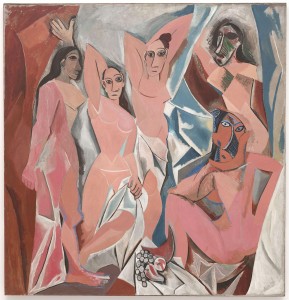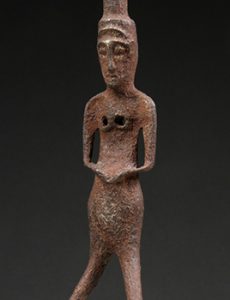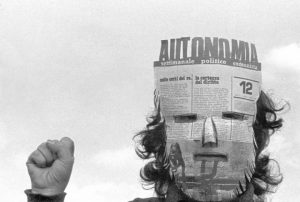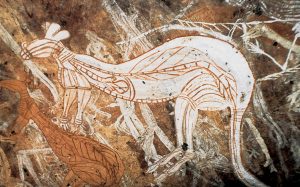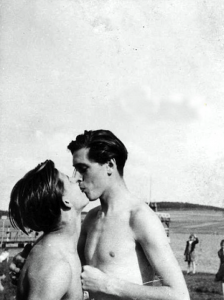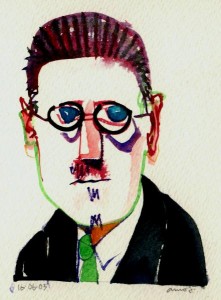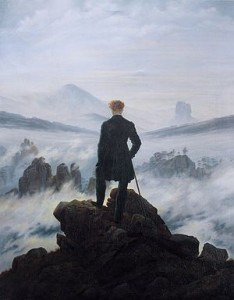Click here to download the list of COMMA-affiliated courses offered during the 2014-2015 academic year.
COMMA-affiliated courses for Fall, 2016
English 104B: British Literature 1900-Present
Professor Maurizia Boscagli
What is 20th century modernity and what does it mean to be modern? This course studies 20th century anglophone literature together with the cultures that produced its textuality, in order to concentrate on the relation between the literary text and history. The themes of the class will include modernization and technology, war and its aftermath, urban experience, gender and identity, colonialism and primitivism, 1950s youth cultures, British national identity at the time of the Cold War (James Bond as national icon), the end of empire, postocolonialism and immigration, modernism and postmodernism. Readings by Conrad, Yeats, Joyce, Virginia Woolf, Stevie Smith, Seamus Heaney, Eavan Boland, J.M. Coetzee, Hanif Kureishi among others.
English 122AP: Literature and the Environment: Imagining Asia and the Pacific
Professor Teresa Shewry
Course description coming soon!
English 146MR: Literature of Technology: Machine Reading and Writing
Professor Rita Raley
What do machine readers, text generators, literary automata, and ‘robot novelists’ (more precisely, neural networks) mean for literature, and textual analysis? In what sense do our notions of authorship, style, and voice need to be reconsidered? How do we know who or what is writing, and does it matter? What is the status and function of the “human” vis-à-vis language in our contemporary socio-technical milieu? What new reading practices have emerged, or do we need now? How are writers and artists using, for example, QR codes, bots, and Google Translate for expressive purposes, and to what end? What is at stake in the rise of machine readers and writers—aesthetically, socially, and politically? Class discussions will also touch upon algorithmic cultures, computer vision, sentiment analysis, conversation bots, spam, and CAPTCHA.
English 197: Figures of Refusal: Work and the Politics of Not Doing
Professor Maurizia Boscagli
How is work, and refusing to work, shown in modern literature? This seminar studies the cultural meaning of work and the refusal of the work ethic in 19th, 20th, and 21st century texts. In Western modernity work has always been presented as one of the chief sources of identity for the individual: we “are” what we do at work. The class will examine what kind of subjectivity is created through work as well as its refusal in a number of texts including Melville’s “Bartleby the Scrivener”, Kafka’ “The Metamorphosis”, Flaubert’s Bouvard and Pecuchet, Monica Ali’s Brick Road. What is the relationship between work and life, work and happiness, work and identity today? How has it changed since the 19th century? How can life, and work, be redefined at the time of scarcity? Together with the novels we will read criticism (Paul Lafargue, Franco Berardi, Kathi Weeks), and watch films by Jean-Pierre and Luc Dardenne, Ken Loach, Leila Kilani).
English 197: Indigenous Literature
Professor Teresa Shewry
This course will centralize creative works (novels, poetry, film, short stories) by Indigenous peoples, and consider their approaches to storytelling, history, and politics. Along the way, we will be exploring topics such as authenticity and heritage; memory and history; urban life and ecology; and comparative research methodologies. Through readings and discussions, we will engage the basic histories, critical terms, and debates surrounding the literatures of Indigenous peoples in Australia, New Zealand, and the United States.
Previous COMMA courses
English 129: Queer Textuality: Sexual Revolutions of the 20th Century
Professor Glyn Salton-Cox
Investigation of the interrelations between writing and queer sexualities, i.e. those sexualities (gay, lesbian, transsexual, transgender, etc.) which represent an averse or contestatory relation to normative heterosexuality.
English 150: Anglo-Irish Literature
Professor Enda Duffy
A study of twentieth-century Irish literature written in English against a background of Irish history during the struggle for Independence and later. Major emphasis on Yeats, Joyce, Synge, and O’Casey; other writers of the period, such as Stephens, O’Flaherty, O’Connor, and Behan, will also be touched on.
English 187LL: Literature and Life
Professor Enda Duffy
Live life more intensely. Be more passionate, fiery, tender. Achieve this, and your own life will be more meaningful, more full, more profound. This is the message of almost every novel, poem, and film. This course explores the following question: What does literature suggest an intensely lived life might be? What do books and films really know about life? Yes, they dwell lots on its beginnings and endings, on birth and death. They focus too on its highpoints, and on the turning points where life changes. This course explores how from the eighteenth century to the present the meanings of life itself have changed, and how literature, reflecting this, has changed also. For example, does the medical view of life match the versions of life told by culture? We will look at how life—not only, but mostly, human life—has been represented, questioned and rethought by looking at parts of a set of big books—from Robinson Crusoe to Jane Eyre to Joyce’s Ulysses—films by Alain Resnais, David Cronenberg, and Jane Campion, and a series of poems, plays and stories by John Keats, Elizabeth Browning, Conan Doyle, Conrad, Virginia Woolf, Yeats, J. G. Ballard, and Irvine Welsh. As a final project, students have the option of writing a paper or making a video that engages the material of the course.

